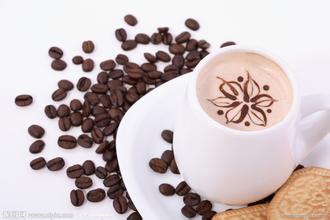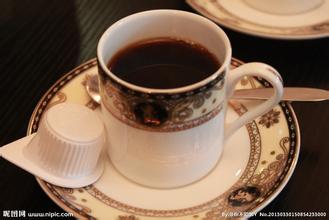Introduction to the strong aroma of La Tisa Manor Coffee in Guatemala
Patriotic Party: The ruling party. Otto Perez, a retired general, founded the party on 20 December 2001 and served as its de facto leader. He was originally a member of the Berg government's ruling coalition and announced his withdrawal in June 2004 due to political differences. General Secretary Rosana Baldetti. [16]
National Alliance for Hope: Opposition party. After the split of the New National Alliance in 2001, it was formed by former President Colom (formerly part of the National Revolutionary Union of Guatemala), a centre-left party. General Secretary Jairo Joaquin Flores.
National Union: Opposition party. In 2003, it was formed by the Reform Movement, the National Unity Party and the M-17 Movement, and won the general election of that year. During the period from January 2004 to January 2008, the allied parties broke away from the ruling coalition. The coalition lost the 2007 general election. General Secretary Jaime Antonio Martinez Loaiza. [17]
Republican Front of Guatemala: Opposition party. It was founded in 1990 by retired general Rios, with conservative ideas and great influence in rural areas. He was in office from January 2000 to January 2004. General Secretary Luis Fernando Perez. [1]
dignitaries
Otto Perez Molina, President of Guatemala. Born on 1 December 1950 in Guatemala City, entered in 1966
Otto Perez Molina
Otto Perez Molina
He attended the Polytechnic Institute of Guatemala, then the American Army's "School of the Americas" and the Inter-American Defense Institute. During his service he was primarily responsible for military intelligence. In 1982, he supported the military coup of then-Defense Minister Oscar Mejia, which overthrew the government of Efrain Rios Montt. From 1993 to 1995, he was Chief of Staff of the Presidency. In 1996, he signed a peace agreement on behalf of the military, ending a 36-year civil war. From 1998 to 2000, he served as a representative of Guatemala to the Central American Defense Commission. He retired in January 2000, founded the Patriotic Party in December 2001, and was elected to the National Assembly in 2004. He lost the 2007 presidential election. On November 6, 2011, he was elected president of Guatemala through the second round of presidential elections.
Guatemala coffee has a strong aroma, even if you don't drink it, just smelling it is already a pleasure. Antigua coffee has a rich and velvety body, rich and lively aroma, and fine acidity. When the seductive aroma lingers on your tongue, it implies an indescribable mystery. On the first sip, you may feel bland, but as the coffee cools, you'll find it slightly sweet and be pleasantly surprised by its depth.
Antigua coffee is sought after by most coffee lovers because of its distinctive aroma. Because it is planted on the belly of volcanoes, it can retain its own characteristics more than Costa Rica, mainly because it has more geographical and climatic advantages than Costa Rica. Guatemala is located in the tropics, but due to its high altitude, the climate is mild and subtropical. Coffee trees bloom and bear fruit slower than coffee trees in other parts of the world under the influence of this climate. However, the mild climate combined with fertile soil creates an excellent environment for growing coffee.
These Mayan-run coffee industries once made Guatemala's economy prosperous and occupied a dominant position in the national economy. Unfortunately, however, the political situation in Guatemala is not conducive to these coffee growers. High output is usually a sign of overall economic prosperity in a country. However, coffee production in Guatemala has declined relatively, to only 700 kg/ha, compared with 900 kg/ha in El Salvador and a staggering 1700 kg/ha in Costa Rica. Guatemala's coffee export trade is controlled by private companies, but the National Coffee Council controls other sectors of the coffee industry.
Some of Guatemala's finest coffee is currently exported to Japan, where it sells for $3 to $4 a cup. In order to revitalize its coffee industry, Guatemala has set up a special coffee association and given maximum support and attention to these high-quality coffees. These efforts will soon bear fruit, and the real beneficiaries are not only coffee growers, but coffee lovers all over the world.
Aristocrats in Coffee
Guatemala Antigua coffee is not only smooth and hard, but also of good quality. It is a perfect combination of acid and sweet. Together with a trace of smoke, it emphasizes its deep depression and mystery.

Important Notice :
前街咖啡 FrontStreet Coffee has moved to new addredd:
FrontStreet Coffee Address: 315,Donghua East Road,GuangZhou
Tel:020 38364473
- Prev

Sweet-smelling Indonesian Kopi Luwak flavor taste characteristics of boutique coffee Fuyin Manor
The Republic of Indonesia is divided into the Greater Jakarta Capital Zone, the Yogyakarta Special Zone, the Aceh Special Zone, and 30 provinces, with a total of 33 first-level districts. The second-level administrative region has 396 counties and 93 cities (2014 statistics). Other major economic cities include Surabaya and Wan
- Next

Introduction to the flavor and taste of coffee in Incht Manor, Guatemala, which has a stronger coffee flavor.
The capital, Guatemala City, is the largest city in Guatemala and the city of Central America. It covers an area of 996 square kilometers and has a population of 3.1 million (2010). Founded in 1524. Due to repeated damage by the earthquake, he moved to his present site in 1776. How low buildings are in the city. It has been the capital since 1779. It was the capital of the Central American Federation from 1823 to 1838. A distribution center for coffee, corn, wheat and other agricultural products. Hold
Related
- Does Rose Summer choose Blue, Green or Red? Detailed explanation of Rose Summer Coffee plots and Classification in Panamanian Jade Manor
- What is the difference between the origin, producing area, processing plant, cooperative and manor of coffee beans?
- How fine does the espresso powder fit? how to grind the espresso?
- Sca coffee roasting degree color card coffee roasting degree 8 roasting color values what do you mean?
- The practice of lattes: how to make lattes at home
- Introduction to Indonesian Fine Coffee beans-- Java Coffee producing area of Indonesian Arabica Coffee
- How much will the flavor of light and medium roasted rose summer be expressed? What baking level is rose summer suitable for?
- Introduction to the characteristics of washing, sun-drying or wet-planing coffee commonly used in Mantenin, Indonesia
- Price characteristics of Arabica Coffee Bean Starbucks introduction to Manning Coffee Bean Taste producing area Variety Manor
- What is the authentic Yega flavor? What are the flavor characteristics of the really excellent Yejasuffi coffee beans?

